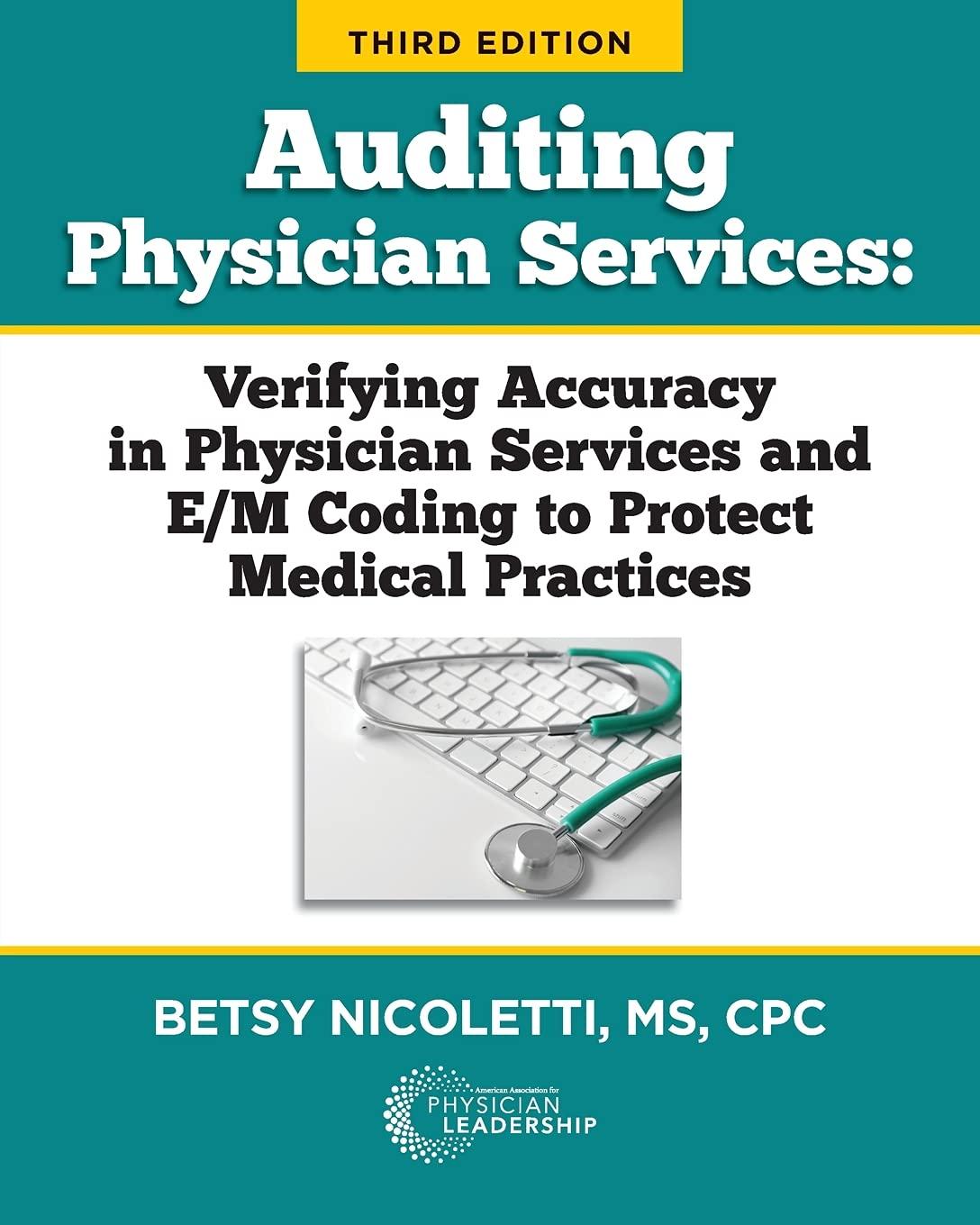Question
[The following information applies to the questions displayed below.] In 2019, Sheryl is claimed as a dependent on her parents' tax return. Sheryl did not
[The following information applies to the questions displayed below.]
In 2019, Sheryl is claimed as a dependent on her parents' tax return. Sheryl did not provide more than half her own support.
What is Sheryl's tax liability for the year in each of the following alternative circumstances? Use Tax Rate Schedule, Dividends and Capital Gains Tax Rates, Estates and Trusts for reference. (Leave no answer blank. Enter zero if applicable.)
a. She received $6,600 from a part-time job. This was her only source of income. She is 16 years old at year-end.
b. She received $6,600 of interest income from corporate bonds she received several years ago. This is her only source of income. She is 16 years old at year-end.
c. She received $6,600 of interest income from corporate bonds she received several years ago. This is her only source of income. She is 20 years old at year-end and is a full-time student.
d. She received $6,600 of qualified dividend income. This is her only source of income. She is 16 years old at year-end. (Round your final answer to 2 decimal places.)
2019 Tax Rate Schedules
Individuals
Schedule X-Single
| If taxable income is over: | But not over: | The tax is: |
|---|---|---|
| $ 0 | $ 9,700 | 10% of taxable income |
| $ 9,700 | $ 39,475 | $970 plus 12% of the excess over $9,700 |
| $ 39,475 | $ 84,200 | $4,543 plus 22% of the excess over $39,475 |
| $ 84,200 | $160,725 | $14,382.50 plus 24% of the excess over $84,200 |
| $160,725 | $204,100 | $32,748.50 plus 32% of the excess over $160,725 |
| $204,100 | $510,300 | $46,628.50 plus 35% of the excess over $204,100 |
| $510,300 | $153,798.50 plus 37% of the excess over $510,300 |
Schedule Y-1-Married Filing Jointly or Qualifying Widow(er)
| If taxable income is over: | But not over: | The tax is: |
|---|---|---|
| $ 0 | $ 19,400 | 10% of taxable income |
| $ 19,400 | $ 78,950 | $1,940 plus 12% of the excess over $19,400 |
| $ 78,950 | $168,400 | $9,086 plus 22% of the excess over $78,950 |
| $168,400 | $321,450 | $28,765 plus 24% of the excess over $168,400 |
| $321,450 | $408,200 | $65,497 plus 32% of the excess over $321,450 |
| $408,200 | $612,350 | $93,257 plus 35% of the excess over $408,200 |
| $612,350 | $164,709.50 plus 37% of the excess over $612,350 |
Schedule Z-Head of Household
| If taxable income is over: | But not over: | The tax is: |
|---|---|---|
| $ 0 | $ 13,850 | 10% of taxable income |
| $ 13,850 | $ 52,850 | $1,385 plus 12% of the excess over $13,850 |
| $ 52,850 | $ 84,200 | $6,065 plus 22% of the excess over $52,850 |
| $ 84,200 | $160,700 | $12,962 plus 24% of the excess over $84,200 |
| $160,700 | $204,100 | $31,322 plus 32% of the excess over $160,700 |
| $204,100 | $510,300 | $45,210 plus 35% of the excess over $204,100 |
| $510,300 | $152,380 plus 37% of the excess over $510,300 |
Schedule Y-2-Married Filing Separately
| If taxable income is over: | But not over: | The tax is: |
|---|---|---|
| $ 0 | $ 9,700 | 10% of taxable income |
| $ 9,700 | $ 39,475 | $970 plus 12% of the excess over $9,700 |
| $ 39,475 | $ 84,200 | $4,543 plus 22% of the excess over $39,475 |
| $ 84,200 | $160,725 | $14,382.50 plus 24% of the excess over $84,200 |
| $160,725 | $204,100 | $32,748.50 plus 32% of the excess over $160,725 |
| $204,100 | $306,175 | $46,628.50 plus 35% of the excess over $204,100 |
| $306,175 | $82,354.75 plus 37% of the excess over $306,175 |
Tax Rates for Net Capital Gains and Qualified Dividends
| Rate* | Taxable Income | ||||
|---|---|---|---|---|---|
| Married Filing Jointly | Married Filing Separately | Single | Head of Household | Trusts and Estates | |
| 0% | $0 - $78,750 | $0 - $39,375 | $0 - $39,375 | $0 - $52,750 | $0 - $2,650 |
| 15% | $78,751 - $488,850 | $39,376 - $244,425 | $39,376 - $434,550 | $52,751 - $461,700 | $2,651 - $12,950 |
| 20% | $488,851+ | $244,426+ | $434,551+ | $461,701+ | $12,951+ |
*This rate applies to the net capital gains and qualified dividends that fall within the range of taxable income specified in the table (net capital gains and qualified dividends are included in taxable income last for this purpose).
Estates and Trusts
| If taxable income is over: | But not over: | The tax is: |
|---|---|---|
| $ 0 | $ 2,600 | 10% of taxable income |
| $ 2,600 | $ 9,300 | $260 plus 24% of the excess over $2,600 |
| $ 9,300 | $12,750 | $1,868 plus 35% of the excess over $9,300 |
| $12,750 | $3,075.50 plus 37% of the excess over $12,750 |
Step by Step Solution
There are 3 Steps involved in it
Step: 1

Get Instant Access to Expert-Tailored Solutions
See step-by-step solutions with expert insights and AI powered tools for academic success
Step: 2

Step: 3

Ace Your Homework with AI
Get the answers you need in no time with our AI-driven, step-by-step assistance
Get Started


